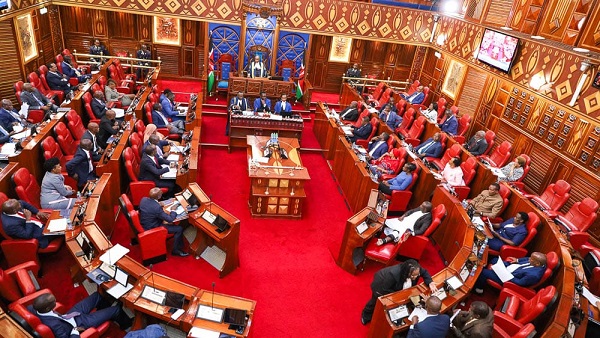In Summary
A new bill in Kenya’s Senate seeks to make Junior Secondary Schools independent institutions, aiming to resolve administrative conflicts, enhance CBC implementation, and improve education quality.
________________________________________________________________________________________________
Kenya’s education system could undergo a significant transformation as the Senate considers a new bill to grant full autonomy to Junior Secondary Schools (JSS). Introduced by Tharaka Nithi Senator Mwenda Getaya, the Junior School Autonomy Bill seeks to recognize JSS as independent institutions, separate from primary schools.
The proposed legislation, which has already received support from over 40 senators, aims to address ongoing administrative conflicts between JSS teachers and primary school heads. According to the senator, overlapping responsibilities and unclear leadership structures have led to confusion, mismanagement of resources, and a decline in learning outcomes.
“Junior Secondary teachers often face limitations due to interference from primary school administrations. This bill will enhance accountability, professionalism, and a conducive learning environment,” Senator Getaya explained while tabling the bill.
The push for JSS autonomy has received bipartisan backing in the Senate, with many lawmakers emphasizing that successful implementation of the Competency-Based Curriculum (CBC) hinges on structural reforms. By recognizing JSS as separate entities with their own leadership, budgets, and staffing, the bill aims to streamline operations and improve teacher management.
Meanwhile, the National Assembly is witnessing a parallel debate, with several MPs opposing the idea of creating comprehensive schools—institutions that combine both primary and junior secondary levels under one administration. These MPs argue that such mergers create confusion in resource allocation, staffing, and leadership responsibilities.
Education stakeholders, including teacher unions and policy experts, have voiced their support for the bill. They argue that independent governance of JSS will lead to equitable distribution of resources, improved teacher morale, and better learning outcomes. Autonomy, they say, will also encourage innovation, discipline, and specialization at this critical stage of basic education.
If passed, the Junior School Autonomy Bill will redefine Kenya’s basic education framework, offering a clearer path for CBC implementation while resolving long-standing governance challenges. With growing momentum in the Senate, the proposed legislation signals a pivotal moment in Kenya’s ongoing education reforms.





